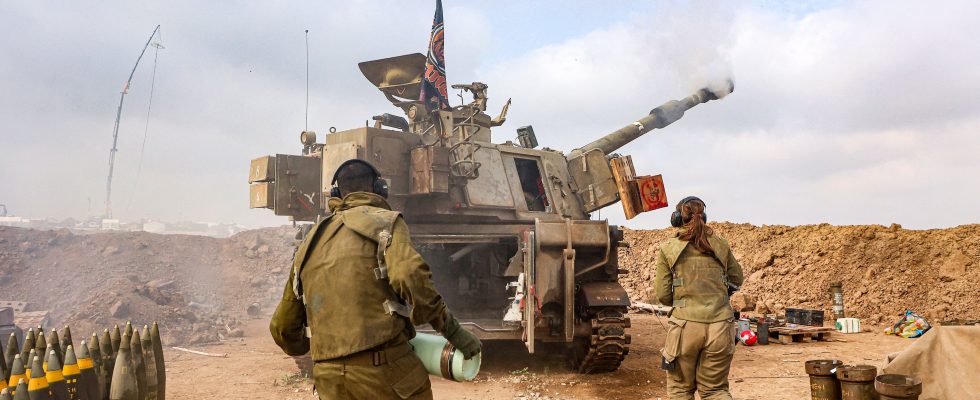How can we imagine the “day after”, when the war rages in Gazathat bombs are raining on the south of this narrow strip of land and that the hope of new releases of hostages fades with the end of the truce? There will, however, be a tomorrow, even if neither party is yet able to envisage it. Of course, it is difficult to imagine what will happen in the coming weeks, as the fog of war obscures the horizon. But the exercise is no less useful for planning ahead. Here are five scenarios that seem likely to us, in the more or less long term. They suggest the worst, but also explore hopeful perspectives. From international governance to the two-state solution, here is the range of possibilities. First scenario of our special report: that of a war that drags on.
This scenario envisaged by several experts is not to Israel’s advantage: after several months of operation, the forces of the Hebrew State are unable to fulfill their objective of “eradication of Hamas”. Despite the indisputable superiority of their army, the IDF soldiers have no choice but to continue to fight a long and grueling battle in the ruins and tunnels dotting the Palestinian enclave, where some of the combatants are still resisting. of the terrorist group.
“This is a very credible scenario,” says Hugh Lovatt, Middle East specialist at the European Council on Foreign Relations think tank. “It would see the continuation of hostilities over many months, during which the Israeli army would fail to completely destroy Hamas .”
Such a prolongation of the conflict would not be without risks. The first of these: seeing the number of losses among Israeli soldiers and Palestinian civilians skyrocket, in an urban environment where they are as vulnerable as they are omnipresent. After two months of war, their number has already crossed the threshold of 17,000 victims, including thousands of women and children, according to the estimate of the Hamas Ministry of Health.
“Long time is working against Israel,” points out General Nicolas Richoux, former commander of the 7th Armored Brigade. “The more civilian victims there are, the more the legitimacy of its operation will be called into question on the international scene.” On the Israeli side, the army acknowledged, on December 5, the deaths of more than 80 soldiers.
The pressure has already increased on the Jewish state. At the beginning of December, even the American ally, through his Secretary of Defense Lloyd Austin, warned him about the conditions of his victory on the ground. “In this type of combat, the center of gravity is the civilian population. If you push it into the arms of the enemy, you replace a tactical victory with a strategic defeat,” insisted the head of the Pentagon, at day after the end of the truce.
There is also, implicitly, the question of the financial cost for Israel of continuing its offensive over time, while 360,000 reservists were mobilized in the days following the massacre of October 7. “Israel does not want a war of attrition,” summarizes Frédérique Schillo, historian, co-author of The Yom Kippur War will not take place (ArchiPoche, 2023). An entire population of young people has been mobilized and this weighs on the economy.” Which a prolonged conflict will only make worse.
